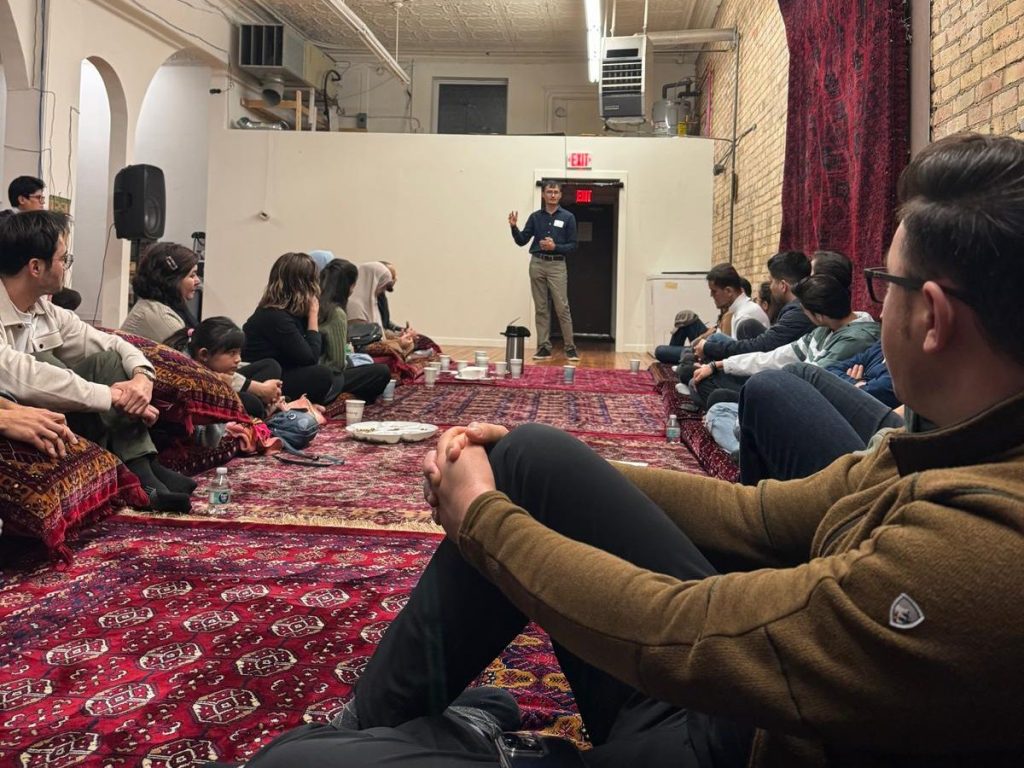The Importance of a Social Life for Mental Well-being
Published on Tuesday, July, 2nd, 2024
Written by Connor Molloy, Psychotherapist, MSW, LICSW

Sadness can make things hard to do. Some of the main symptoms of sadness are feeling tired often, not moving as much as you used to, and not really having interest in things you used to like to do – such as hanging out with other people. These all mean that spending time with other people can suddenly feel like a challenge, or another task that you do not want to complete. But that is one of the tricks that sadness plays, to make spending time with others sound bad, when it is really part of the cure to make sadness go away.
Think about times in your life when you were feeling happy. It is likely they often include time spent with others. Most cultures put a huge importance on spending time in a group, and Afghans are no exception. Afghans celebrate weddings in a group, frequently worship God in a group, and get together in a group to cheer on cricketers. If some of those social activities have been lost because of coming to the United States, it is even more important to add back those missing elements of social joy that were so important to your life before.
So how do we push ourselves to be social when sadness is making us want to be alone all of the time? One is to think about how you may feel better after, even if you do not feel good going into it. Another is to find social events that are easy, predictable, or familiar. This month we had a huge Eid gathering that was full of socialization, but it was easy because it was free, predictable because we knew who would likely be there, and familiar because it was an annual holiday celebrated in Afghanistan.
Feeling worry or nervousness can also make it hard to want to be around social groups or gatherings. We can worry how others will assess us. Another worry that is common with people starting new lives in a new country is that we can worry other people will bring up conversation topics that are painful or embarrassing to talk about. It is understandable to not want to talk about missing your family in front of strangers, or how difficult it is to find a job, but those need not be barriers to connecting with others. Even if you think you will be asked those things, you still get to control what you share about your life and how deeply you share. Be prepared with short and surface level answers for those questions, like, “Oh, you know, things are up and down. How about you?” People love to talk about themselves, so quickly turning the conversation to the other person is a great way to avoid sensitive topics. And with that preparation going into the gathering, most topics will end up being neutral ones that are easy to handle.
Trauma, or the experience of violence and loss, can also cause a person to not want to make social connections. This is completely normal. Of course a person would be hesitant to connect with someone else after they have learned how painful it is to lose someone. However, a life without connection is also painful. There may be some animals that do not need others, but people are not like that. Just like we need food and water, we need others
to cheer us up, show us they care, and say we are doing a good job.
Finally, being with other people can help us “get out of our heads.” If you are dealing with new or distressing thoughts or emotions, there is often little that can provide as instantaneous relief as a nice conversation with another person. A nice conversation with another person can remind us that there is a whole world outside of our heads, and also that there are ways of being and feeling that may not be where we are at now, but are possible
for us in the near future.
